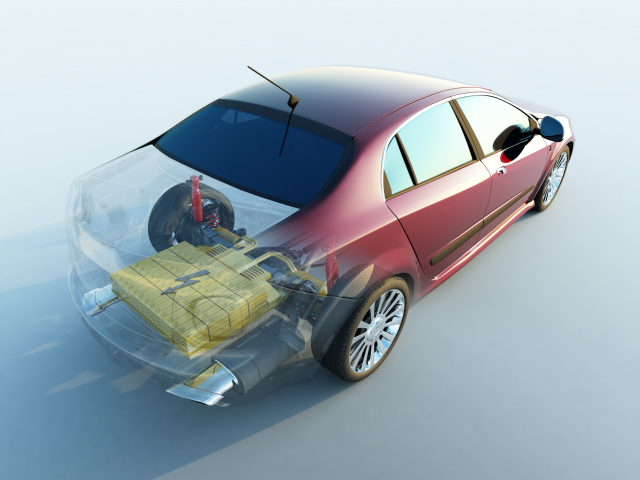3 Things You Should Know About EV Batteries

Although they're cheaper to drive in the long run, electric vehicles (EVs) cost more upfront than comparable gasoline-fueled cars. Why? The answer is under the hood — or rather, what's not under the hood. Instead of an internal combustion engine with a gas tank, EVs are powered by an electric motor connected to a battery pack. And those batteries are among the most expensive and technologically advanced components on the road. Here's what you need to know about the "fuel" that keeps EVs moving.
Batteries can be recycled
The lack of a tailpipe isn't the only thing that's green about electric vehicles. More than 90% of the materials in EV batteries can be recycled. The cells in battery packs can also find new life when they're taken off the road; they might not have enough juice left to drive a car, but they have plenty of capacity for other uses. For example, batteries recovered from Chevrolet Volt vehicles provide backup power for a General Motors data center. Nissan is repurposing Leaf batteries to power streetlights in Japan.
Batteries are safe
According to the U.S. Department of Energy, electric vehicles must meet the same rigorous safety standards required for conventional vehicles, in addition to EV-specific standards for securing batteries during a crash, limiting chemical spills and isolating the chassis to prevent electric shock. The materials used in lithium-ion batteries are flammable (not unlike, say, gasoline), but EVs are designed to minimize this risk and contain the damage if there's a problem.
Batteries can be replaced
It's a common misconception that EVs will outlast their batteries, and that it would be too expensive to replace the battery — you'd have to replace the car. That's not the case. Most EV manufacturers provide 100,000-mile warranties on their batteries, and studies have shown that EV batteries retain more than 80% of their capacity after reaching that milestone.
If you plan to put 200,000 miles on your EV and you do need to replace the battery at some point, in some cases it's no more expensive than replacing the engine on a conventional car that's been around the block that many times. Plus, battery costs are steadily decreasing every year.
Electric vehicles are growing in popularity, but the technology is still new. By sorting out fact from fiction, you can better appreciate the potential benefits of replacing that old gas tank with a new battery-powered car.